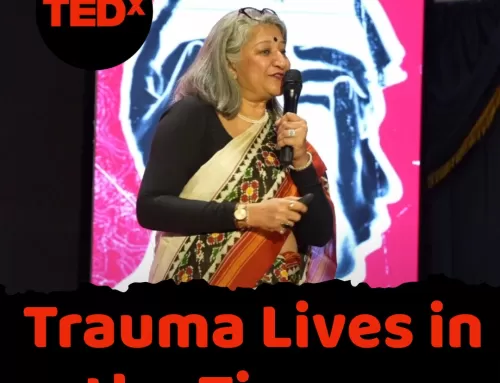Adult loneliness and the role of Childhood trauma (abuse, neglect), perceived social support – a public mental health issue
Loneliness isn’t being physically alone; it’s feeling lonely even when surrounded by friends and family.
In this video, Dr. Gunjan Trivedi discusses the detrimental impact of loneliness on an individual’s mental health. He presents the key insights from his and his team’s study.
Dr Gunjan covers several factors of loneliness in the literature. Specifically, the Society for Energy & Emotions, Wellness Space findings are included. Based on more than 1000 personal interviews, he discusses how childhood trauma (also known as Adverse Childhood Experiences that cover child abuse and neglect categories) and its intensity have also been shown to be strongly correlated with adult loneliness. Loneliness is linked to several mental health issues, such as depression, anxiety and behavioural changes.
To address this issue, specific components need to be identified, like the presence of emotional neglect, peer isolation, and emotional abuse. All these are significant contributors to adults feeling isolated.
Unique findings from Wellness Space about loneliness:
Our unique findings are highlighted below, some presented at a recent National Academy of Psychologists conference.
- Loneliness is strongly associated with depression, anxiety and insomnia – in that order!
- Loneliness is also negatively associated with perceived social support. Hence, higher levels of loneliness are linked to lower levels of perceived social support, and vice versa.
- Loneliness is also correlated with suicidal behaviour (history of suicidal thoughts, plans and attempts!)
Finally, going beyond the current issues or presenting problems, if we dig deeper into the link between an adult’s feeling of loneliness and the correlation with what happened to that adult decades ago, we identified the following!
- Childhood trauma correlated with adult loneliness. Hence, higher levels of trauma during childhood increase the risk of an adult’s feeling of loneliness.
- Specifically, a history of emotional neglect, peer isolation and emotional abuse during childhood is linked to an adult’s loneliness.
To summarise, there are several factors ranging from childhood trauma components, anxiety, depression and perceived social support – involved in an adult’s feeling of loneliness. Additional triggers, such as the loss of a partner, add more risk to the outcome of loneliness.
Watch the entire video for an in-depth understanding of the topic.
Read our work on the topic:
https://wellness-space.net/naop24-childhood-trauma-suicide-behavior-and-resilience-and-depression
References:
- Hughes, M. E., Waite, L. J., Hawkley, L. C., & Cacioppo, J. T. (2004). A Short Scale for Measuring Loneliness in Large Surveys: Results From Two Population-Based Studies. Research on ageing, 26(6), 655–672. https://doi.org/10.1177/0164027504268574
- Barjaková, M., Garnero, A., & d’Hombres, B. (2023). Risk factors for loneliness: A literature review. Social science & medicine (1982), 334, 116163. https://doi.org/10.1016/j.socscimed.2023.116163
- Dahlberg, L., McKee, K. J., Frank, A., & Naseer, M. (2022). A systematic review of longitudinal risk factors for loneliness in older adults. Aging & mental health, 26(2), 225–249. https://doi.org/10.1080/13607863.2021.1876638
- de Heer, C., Bi, S., Finkenauer, C., Alink, L., & Maes, M. (2024). The Association Between Child Maltreatment and Loneliness Across the Lifespan: A Systematic Review and Multilevel Meta-Analysis. Child maltreatment, 29(2), 388–404. https://doi.org/10.1177/10775595221103420







Leave A Comment